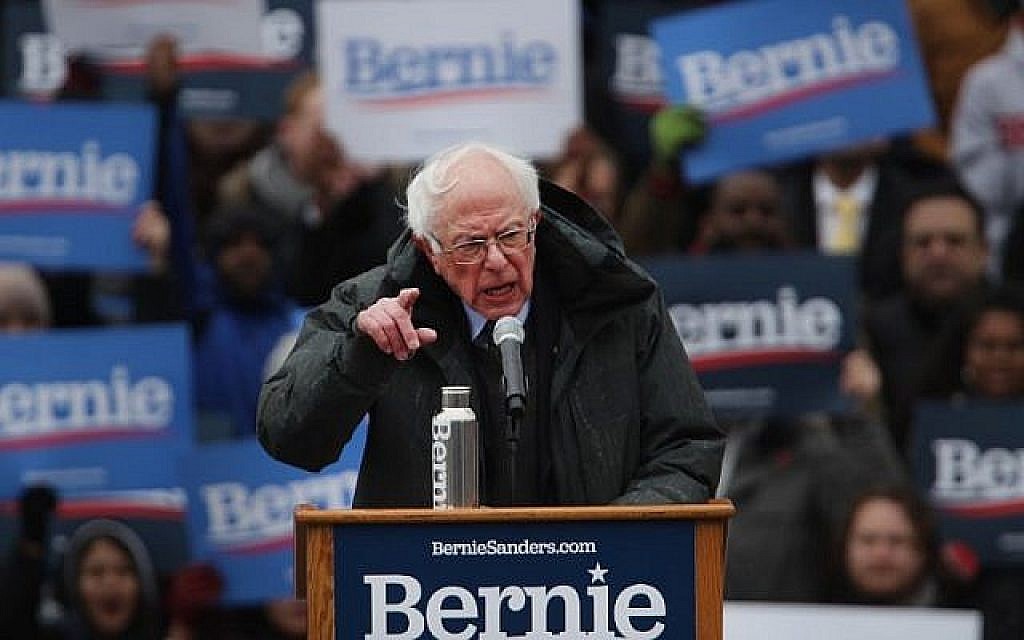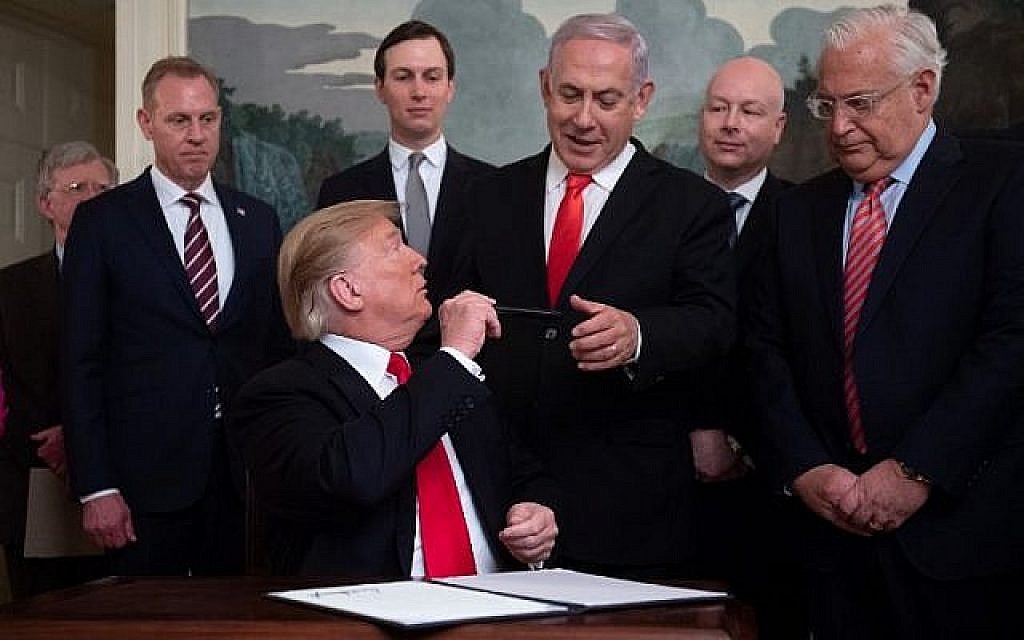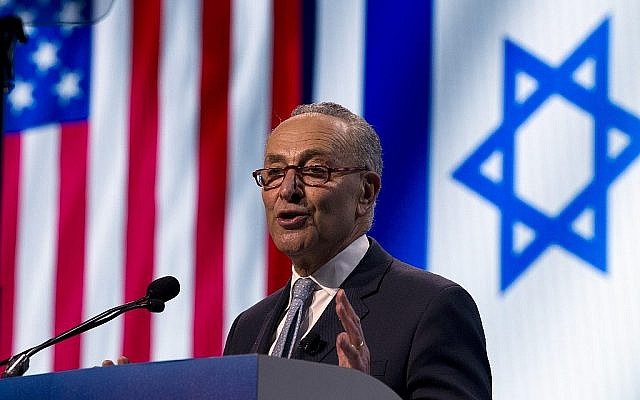Top AIPAC Conference Headlines
The annual AIPAC conference took place last week, and headlines related to the event dominated media attention for days. Here are a few of the biggest stories.
The annual American Israel Public Affairs Committee conference took place last week, and headlines related to the event in Washington, D.C. dominated media attention for days. Here are a few of the biggest stories coming out of the event:
A Boycott That’s Not a Boycott
Following a controversial call from progressive group MoveOn for Democratic presidential candidates to boycott AIPAC, none of the major Democratic faces in the race showed up.
Vice President Mike Pence was among those who, during his speech at the conference, accused the Democratic Party of “boycotting,” in what was an unusually partisan attack at the conference, which is nonpartisan.
While some accused those candidates of the boycott, the only to official state such intent was Sen. Bernie Sanders, D-Vt.
In the wake of the controversy, AIPAC itself pushed back against the idea that there was a boycott and, on March 26, met personally with four 2020 hopefuls during its yearly lobbying blitz.
“Senators Booker, Harris, Gillibrand, Klobuchar all met with AIPAC constituent delegations,” an AIPAC official told the Jewish Telegraphic Agency.
JTA also reported that the foreign policy advisor for Sen. Elizabeth Warren, D-Mass., met with the group that same day.
AIPAC’s statement only discussed those candidates currently serving in Congress, where the group’s lobbying efforts are focused.

What is Anti-Semitic?
One big question addressed by speakers at AIPAC this year was: What defines anti-Semitism?
Among the topics raised were remarks by Rep. Ilhan Omar, D-Minn., attacking the lobbying group, statements that many decried as anti-Semitic.
Pence drew a standing ovation for his comments on Omar, including that “those who slander this historic alliance between the United States and Israel should never have a seat on the Foreign Affairs Committee of the United States House of Representatives.”
Others who called out Omar by name included Secretary of State Mike Pompeo, Rep. Steny Hoyer, D-Md. and Senate Minority Leader Chuck Schumer, D-N.Y.
Schumer, the highest-ranking Jewish legislator in the U.S., addressed anti-Semitism coming from all directions.
“And let me tell you if you only care about anti-Semitism coming from your political opponents, you are not fully committed to combating anti-Semitism,” he said.
Pompeo also addressed anti-Semitism in his address, saying that “Anti-Zionism is anti-Semitism.” He referenced Omar, and Rep. Rashida Tlaib, D-Mich. indirectly for their support of the boycott, divestment and sanctions movement.
Absent from his address was any mention of anti-Semitism from the far right.
Schumer himself didn’t hesitate to name Omar, and also discussed right-wing anti-Semitism, such as tweets from House Minority Leader Kevin McCarthy, R-Calif. that three Jewish billionaires had purchased midterm elections.
“When someone names only prominent Jews as trying to buy or steal our elections, we must call it out,” Schumer said.
He also took aim at the White House, and particularly U.S. President Donald Trump’s reaction in the wake of the Charlottesville “Unite the Right” rallies in 2017.
“When someone looks at a neo-Nazi rally and sees some very fine people among its company, we must call it out,” Schumer said.

Trump Recognizes the Golan Heights
After announcing a policy shift on Twitter mid-March, Trump formally recognized the Golan Heights as Israeli land.
Prime Minister Benjamin Netanyahu was with Trump as he signed the proclamation.
“Your recognition is a two-fold act of historic justice. Israel won the Golan Heights in a just war of self-defense, and the Jewish people’s roots in the Golan go back thousands of years,” Netanyahu said.
The move reversed more than 50 years of American foreign policy, after Israel took the Golan heights from Syria in the Six-Day War in 1967. Much of the international community still considers the Golan Heights occupied land, including the European Union, who unanimously voted against recognition of Israeli sovereignty in the region last week.
United Nations Secretary-General António Guterres said that it is “clear that the status of Golan has not changed,” U.N. spokesperson Stephane Dujarric said March 25.
Critics of Trump’s decision say that it weakens the U.S.’s ability to chastise Russian annexation of Crimea, and also that it is an attempt to shore up support for Netanyahu ahead of difficult elections this month.
- American Israel Public Affairs Committee
- AIPAC
- News
- politics
- Vice President Mike Pence
- Bernie Sanders
- Elizabeth Warren
- Mike Pompeo
- Chuck Schumer
- Rashida Tlaib
- Charlottesville
- MoveOn
- President Donald Trump
- Prime Minister Benjamin Netanyahu
- Ilhan Omar
- Steny Hoyer
- BDS
- Anti-Semitism
- Kevin McCarthy
- Golan Heights
- Israel
- António Guterres
- Cory Booker
- Kamala Harris
- Kirsten Gillibrand
- Amy Klobuchar




comments